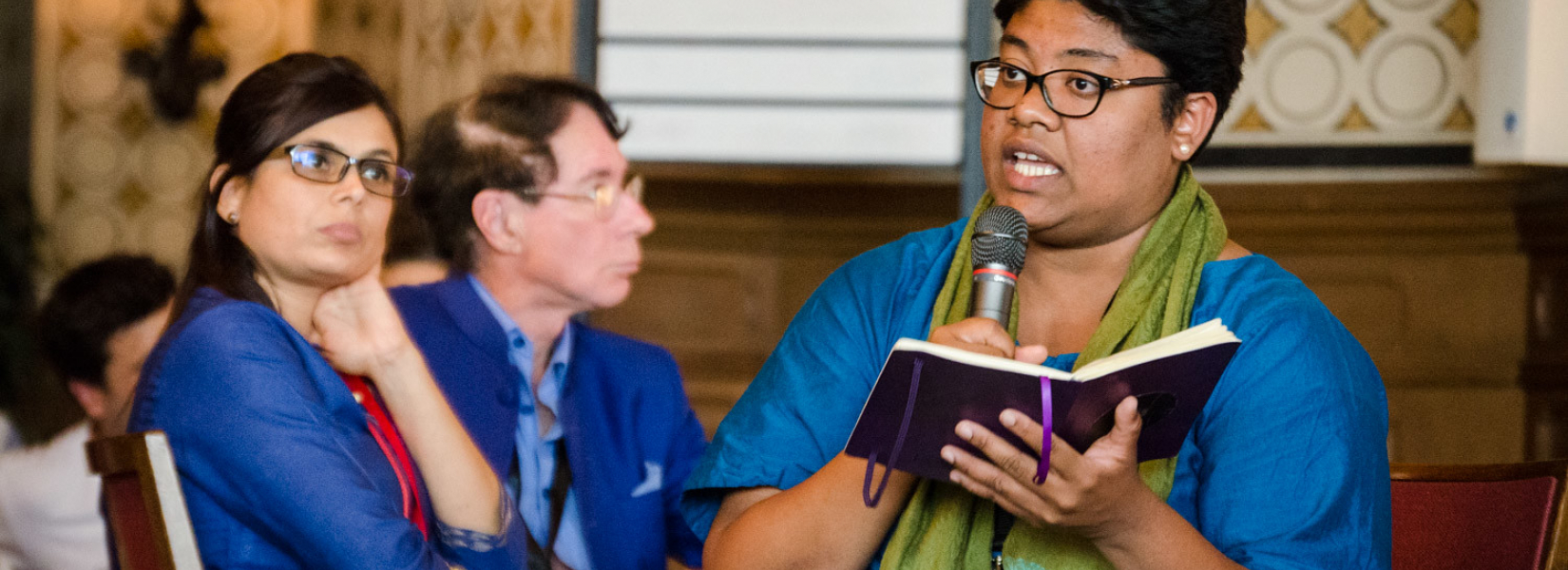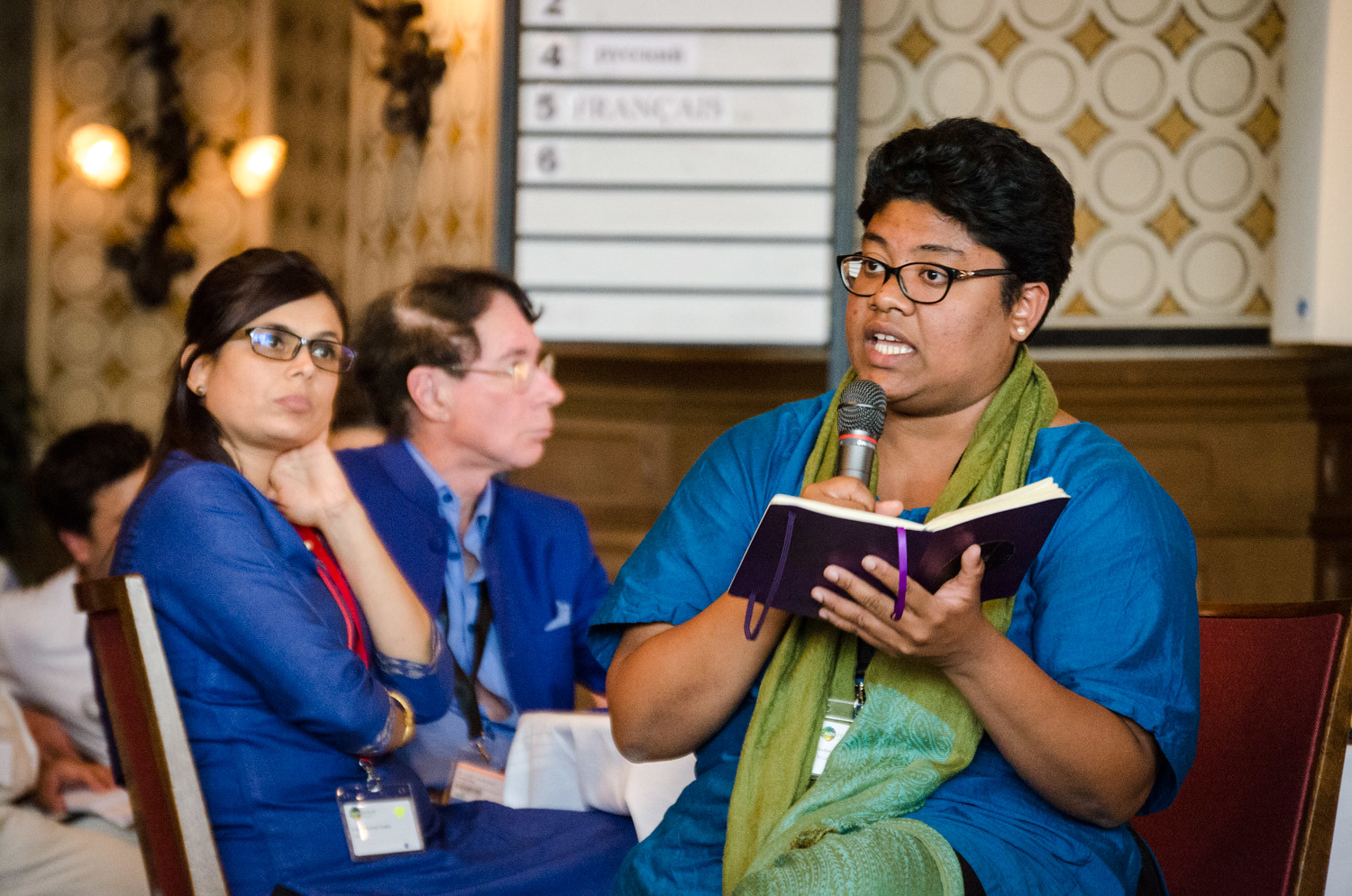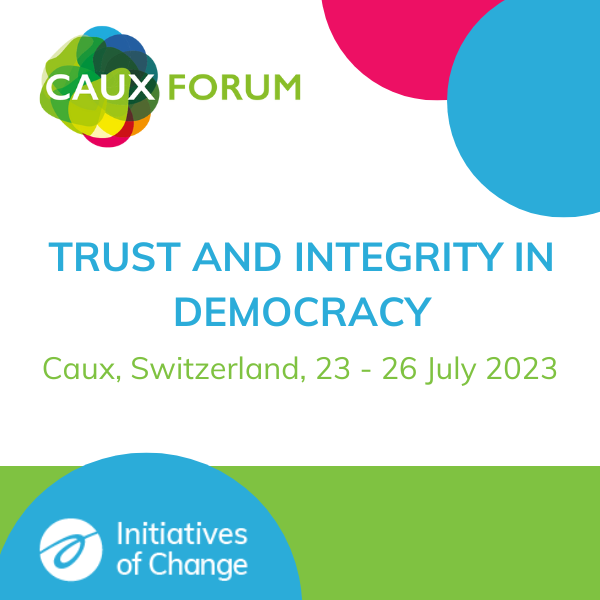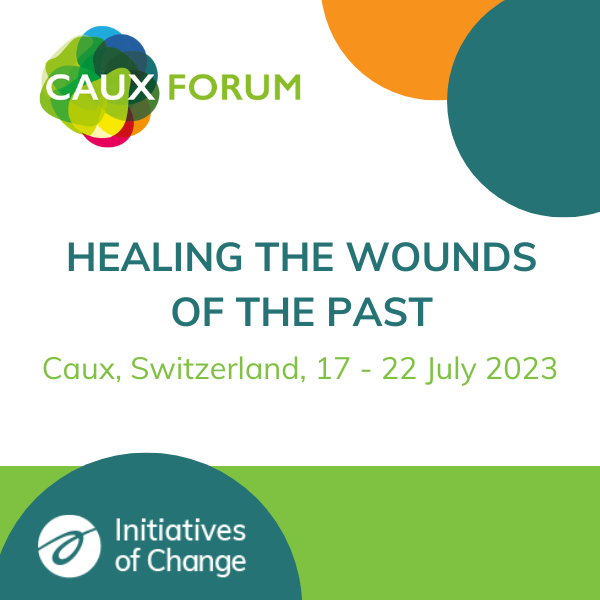A peacebuilding approach to violent extremism
Towards an Inclusive Peace 2017
23/08/2017
From 23 to 26 July 2017, the Caux Forum brought together 95 grassroots activists and local peacebuilders, national and international policy makers, NGO representatives, academics and business people to explore alternative ways to address violent extremism. Participants in the first edition of Towards an Inclusive Peace (TIP) came from 33 countries and a wide range of backgrounds.
The event looked beyond traditional approaches, which mainly focus on repressive measures. It offered participants insights on holistic approaches and early warning mechanisms that can tackle the root causes of violent extremism, especially on a local level.
The event explored two main tools for understanding and analyzing the drivers of violent extremism: narrative analysis and community-based indicators (CBIs). Participants were divided into six groups, each approaching the issues from a different angle: ecology, economy, gender, politics, race and ethnicity, and religion.
Narrative analysis uses story-telling as a bridge to look beyond the image of ‘the enemy’ that too often impedes understanding of why people get engaged in violent extremism. When we listen to people, we have a better chance of learning what pushes them towards radicalism and even criminal actions. Meanwhile, community-based indicators use local signs and perceptions to measure the increase or decrease of radicalization in a community.
These tools encouraged participants to strengthen their capacity to promote dialogue and peaceful coexistence: by actively listening and communicating with everyone in the community, and by identifying signs, changes or shifts in order to take preventive action.
Keynote speakers, such as Elhadj As Sy, Secretary General of the International Federation of Red Cross and Red Crescent Societies (IFRC), Pekka Metso, Ambassador-at-Large for Intercultural and Interreligious Dialogue Processes in the Finnish Ministry for Foreign Affairs (MFA), Jonathan Russell, Executive Director for Quilliam Global, and Fatima Zaman, a Countering Violent Extremism Advocate at the Extremely Together Programme of the Kofi Annan Foundation, provided an overview of current discussions on violent extremism. In addition, input speakers offered the context for participants to test narrative analysis and community-based indicators.
‘One of the key learnings is the importance of insisting on ways to transform violent extremism, and not just to counter or prevent it,’ said Caridad Rios, one of the participants. ‘My main take-away is that there are many people out there working towards an inclusive peace.’
Another participant, Michelline Safi Ngongo, appreciated the ‘valuable platform where practitioners, participants and experts discussed and shared knowledge and information on how to tackle some of the world's most pressing challenges’.
In 2018, Towards an Inclusive Peace will focus on violent extremism from a policy perspective. It will share concrete proposals on how to reintegrate those who have been radicalized. It will also draw on tools and mechanisms of restorative justice, thus continuing with a peacebuilding approach. In the meantime, participants are encouraged to use the tools they’ve learnt in their local communities.































